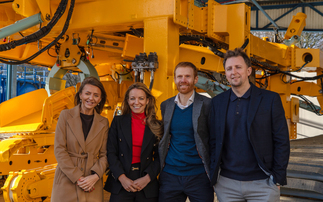
Industry Voice: As Dale Carnegie’s seminal book of the 1930s suggested, you win friends and influence people through respectful dialogue - that applies as much to companies as to people, according to Schroders' Johanna Kyrklund
Companies' annual general meetings (AGMs) could be testy affairs back in the 1980s and 1990s, the UK's era of mass share ownership.
One former CEO of that period recently confessed to me: "Our security would ask if the venues had a sloping stage that made it impossible to run up. They were intense meetings."
Such confrontation is less common today. For one thing, AGMs have been run online during the lockdowns. Only in recent weeks in the UK and US have in-person meetings begun to return. Secondly, AGM attendance is sadly not what it used to be, typically comprising a handful of individual investors with activists showing up to only the most controversial of company meetings.
This is not just the case in the UK, but in many major markets.
While it would be preferable to see better attendance and more open debate at AGMs, it is important to understand the possible reasons that numbers have dwindled.
One explanation could be that a change in accountability is quietly happening elsewhere. This change is not annual, but all-year round. It is the dialogue between companies and us, the asset managers who represent the interests of the majority of shareholders.
These conversations do not necessarily lend themselves easily to eye-catching newspaper headlines. But they are accelerating positive change in companies. This is different to pushing for progress through raising resolutions at AGMs but can often be more meaningful.
The chance of successful outcomes from these engagements rises when the dialogue with company management and board members is positive. To work, you need to set the right tone, to have the right culture - one of respect and openness.
In the days before the pandemic, when visits to our offices were possible, clients would comment on the level of quiet on our investment floors.
Contrary to the common Hollywood depiction, we don't spend our time shouting at each other. What you would see is a respectful exchange of ideas, deep analysis and the value of persistently and patiently seeking to build the returns that our clients require of us day by day, week by week, year by year.
This is needed to create effective investment teams. You need a culture built on accountability, diverse opinions and trust. These principles are not developed overnight; it takes years to build the right relationships that allow us to understand the challenges we face and determine the best way forward.
In many cases, our culture shapes not just how we interact with our colleagues, but with all of our stakeholders - our clients, our suppliers, our counter parties in markets and the companies we invest in.
When it comes to engaging with companies. scoring short-term points against the management at the AGM is not the most effective means of driving change. As long-term investors, our interactions with these companies will play out over many years. So it is important that these companies view us as a thoughtful investor with a thorough understanding of their business, who is truly focused on encouraging them to meet their goals.
This increases our influence. For example, we first engaged the oil company Shell on its climate ambitions almost 20 years ago, in 2002. Since, then, we have recorded 36 exchanges with the company on environmental topics, by fund managers and analysts across Schroders. Today, Shell has set a target to become a net zero emissions energy business by 2050 but we will continue to push the company to move quickly and to hold it accountable for missteps. That relationship and exchange spans four changes of CEO at the company and underlines the importance of long term relationships to drive lasting change.
But make no mistake, if engagement fails to achieve sufficient progress we will vote against management at AGMs. Last month we did just that with the oil giant Exxon, leading to the replacement of two directors, and with Amazon where we voted against the lead independent director in protest at the lack of transparency on labour standards.
Our responsibility is to deliver returns and manage risk for our clients and so we will, where necessary, sell out of companies that are not changing fast enough. Such a conclusion would represent a failure of engagement. Constant and collaborative intervention should make such failures rare.
As Dale Carnegie's seminal book of the 1930s suggested, you win friends and influence people through respectful dialogue. It applies as much to companies as to people. And it has never been more important for asset managers to influence companies the world over.
Johanna Kyrklund is chief investment officer and global head of multi-asset investment at Schroders.
This article is sponsored by Schroders.







